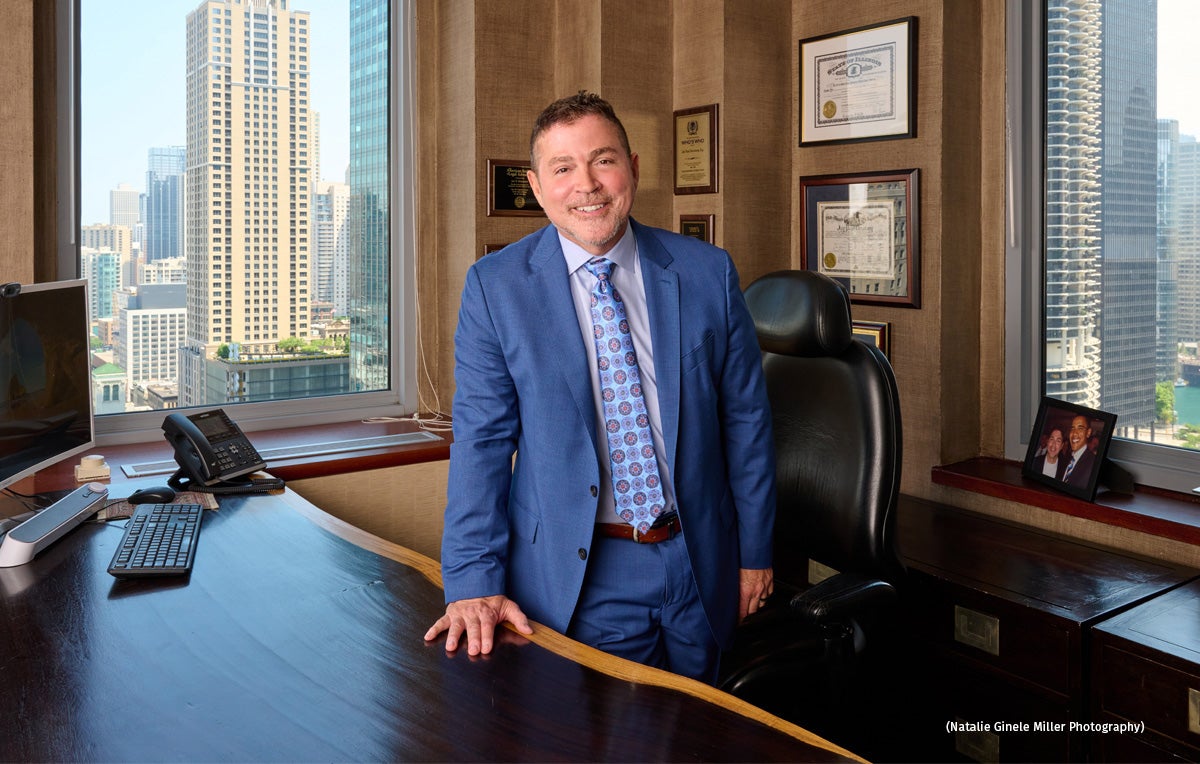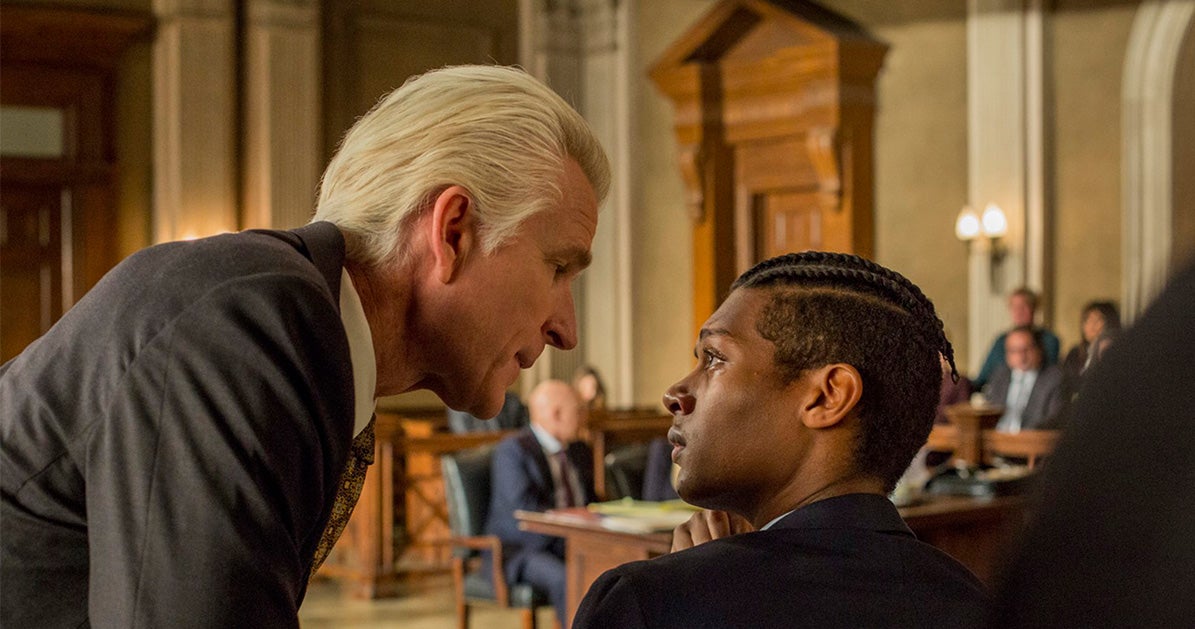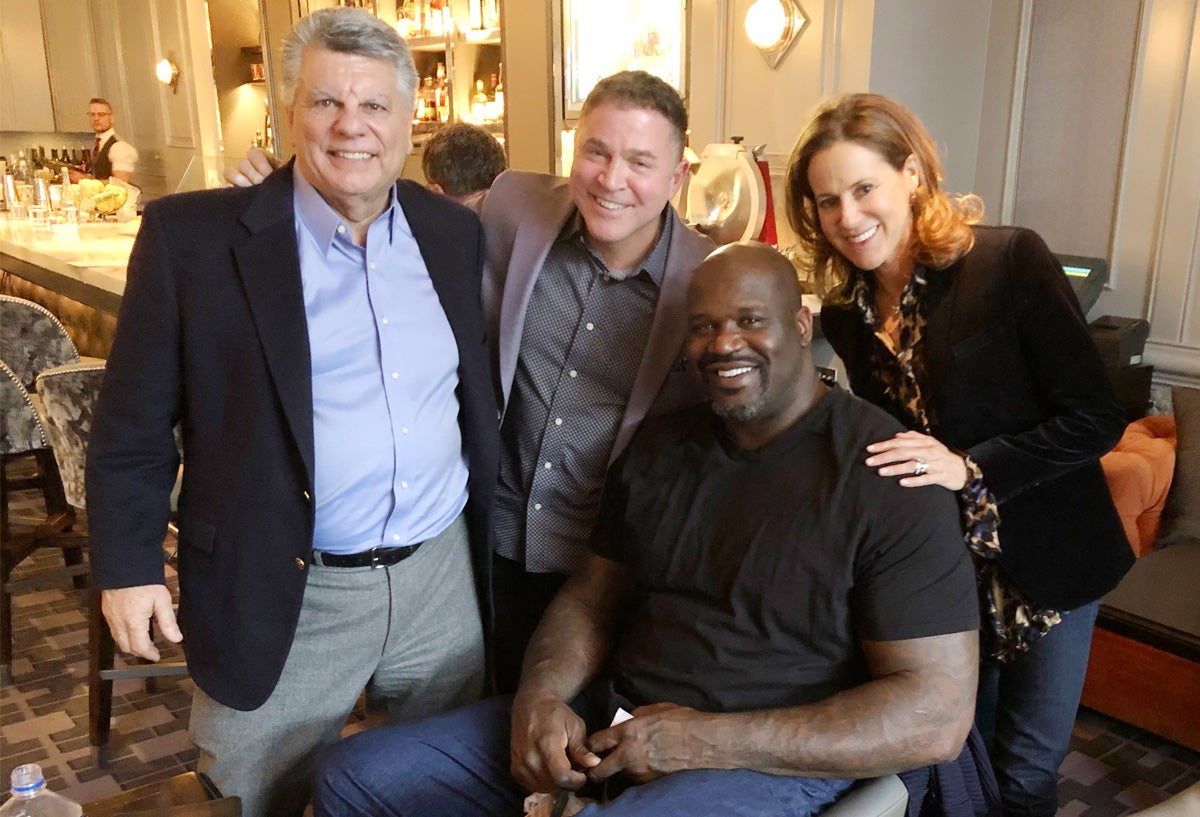FIGHT SCENE
Attorney Jay Paul Deratany, MFA ’13, advocates for foster youth in court and on the big screen.
By Jessica Weber
here’s a pivotal moment in the film “Foster Boy” where a young man reluctantly reads from his notebook of rap verses to his court-appointed attorney. It’s the only way he is able to recount the harrowing experience of his many years in foster care. It’s then the lawyer finally begins to understand the pain inflicted upon his client by a broken system. This is the harsh reality that writer and executive producer Jay Paul Deratany, an alumnus of the UCR Low-Residency MFA program in Palm Desert, became all too familiar with as an attorney representing foster youth, and he has been advocating to fix the foster care system for nearly two decades. Growing up in Detroit, the 58-year-old said he first witnessed social injustices as a kid, recalling the Detroit riots in 1967 during which police brutality against Black people was blazoned across his TV screen.
“I got a good taste of some of the disparity in income and prejudice,” he said. “We lost our home when I was 12 or 13, so I grew up understanding poverty and how people are looked down upon.”
With nearly half a million children in foster care in the U.S., incidents of abuse and neglect are staggering, with reports from the National Conference of State Legislatures indicating lower-income kids and children of color are disproportionately affected. According to a 2014 National Health Statistics Report, more than half of children in foster care had experienced caregiver violence or caregiver incarceration, and almost two-thirds had lived with someone with an alcohol or drug problem. Deratany has spent his career as an attorney, and later, as a writer, focusing on social justice causes. He attended Michigan State University, earning a bachelor’s degree in political science before attending DePaul University College of Law, though he acknowledges his pursuit of a law degree was born more out of expectation than passion.
“I actually wanted to be a writer or an actor, but everybody was either going to be a doctor or an MBA or a lawyer — it was just how the 1980s were,” he said. “Writing and acting, as much as I wanted to pursue them, weren’t considered practical in my mind.”
After law school, Deratany spent a short stint working for a legal aid organization before joining a firm and eventually starting his own in Chicago in 1992. Until roughly 18 years ago, his practice, Deratany & Kosner, focused primarily on cases related to medical malpractice, auto accidents, and corporate litigation. That’s when an attorney referred a case to him involving a 15-year-old boy who was placed into a foster home by a private agency and found to be physically and sexually abusing his foster mother’s younger biological children. The case exposed the agency was aware the child had a history of sexual abuse and mental illness, and purposefully hid that information from his foster parent. This deception allowed him to be placed in a home with vulnerable children.
“This private company was just placing kids one after another, and they got paid for each placement, which means if the placement fails, they get more money to place that child again,” Deratany said. “It’s a system that’s set up to fail, and it profits by failure, not success … It just bothered me because I don’t think children should be products.”
Deratany’s firm has since handled dozens more cases involving the failures of the foster care industry, including high-profile lawsuits like that of Anthony Avalos, a 10-year-old boy who was tortured and killed by his mother and her boyfriend, which is set to go to trial next year. In 2018, Deratany won a landmark $45 million judgment against a social services agency involving the death of 2-year-old Lavandis Hudson — the largest award in the history of the state of Illinois for a case involving the death of a toddler in the foster system. Deratany noted even foster children who make it to adulthood face insurmountable odds.
“Our foster care system is a mess,” he said. “Forty percent of (children) that age out of foster care wind up dead, homeless, or in prison within three years, and we’ve got to do something about that.”
Solicitor to Screenwriter
Despite his courtroom successes, Deratany maintained his long-time desire to become a writer. In 2008, he authored the play “Haram! Iran!” based on the true story of Mahmoud Asgari and Ayaz Marhoni, who were put to death in Iran for an alleged homosexual encounter. It premiered in Chicago, and later ran in Los Angeles, New York, and London, garnering a GLAAD award nomination. Its success inspired Deratany to pursue a writing degree, and his search led him to UCR’s Low-Residency MFA program in 2011. He said he chose the program because its hybrid format of remote and in-person instruction allowed him to continue as a full-time attorney. However, Deratany said he worried he was too old to return to school and discussed his reservations with program director and creative writing professor Tod Goldberg.
Matthew Modine, left, and Shane Paul McGhie in a scene from “Foster Boy.” (Courtesy of “Foster Boy”)
“I said to him, ‘How old will you be in two years when you’re done with the program?’” Goldberg recalled. “He told me he’d be in his late 40s. I said, ‘How old will you be in two years when you don’t finish the program?’ I think he got the point.”
Deratany formed close relationships with many of the faculty members, including William Rabkin, Joshua Malkin, and Deanne Stillman, who helped him develop his craft and provided one-on-one mentorship. He established a particularly close bond with producer and core faculty member John Schimmel. Deratany credits Schimmel with encouraging him to focus his writing on what he was most passionate about — the issues surrounding the foster care system and the children most affected by it. It was in Schimmel’s screenwriting class that Deratany wrote the first iteration of what would become the script for “Foster Boy.”
“I think we helped Jay find his voice, we surely taught him how to write and produce a film for Hollywood, but more than that, I think we helped him develop a support system for his specific passions,” Goldberg said. “Jay is the perfect example of the kind of student we love: He wasn’t a hobbyist. He came to us needing that one extra ingredient. And, it turns out, we just happened to have it.”
After working with Deratany through several edits and rewrites, Schimmel shared the screenplay with his friend, producer Peter Samuelson, known for films such as “Revenge of the Nerds” and “Arlington Road.” Like Deratany, Samuelson was an advocate for foster youth and founded the nonprofit First Star, which provides college-preparatory programs for kids in foster care. He agreed to produce Deratany’s film and later introduced Deratany to NBA legend Shaquille O’Neal, whom Samuelson thought would respond to the film’s goal of exposing corruption in the foster care system. O’Neal met with Deratany in Atlanta and signed on as an executive producer of the film.
“All of us on this project … believe that ‘Foster Boy’ can and must draw people’s attention to the plight of foster kids and ignite a national conversation about what we can do to improve their lives,” O’Neal wrote last year in an op-ed for Variety. “Shaquille is a really kind, intelligent man,” Deratany said. “He wants and really manages to merge his sense of social justice with a sense of business to make a better world.”
Roll Camera
“Foster Boy,” which began production in 2019 and is based on Deratany’s own experiences in the courtroom, tells the story of Jamal Randolph, a young African American man played by Shane Paul McGhie, and his uptight white attorney Michael Trainer, played by Matthew Modine. Randolph is a character who has spent most of his life in foster care, where he was subjected to years of sexual abuse at the hands of an older foster child. Randolph and Trainer struggle to find common ground and must overcome their own biases in order to expose the negligence of a multimillion-dollar for-profit agency. Deratany specifically wanted to shed light on the for-profit aspect of foster care and he failings of the court system to find justice for people of color.
“We can’t ignore the fact that there are so many Black and brown people in foster care,” he said. “Society has ignored this problem, and there’s an inherent racial bias that goes on in the court system.”
As writer and executive producer, Deratany played an active role during the film’s production. Along with providing legal assistance, he contributed to the editing process and was involved in major casting decisions. “Foster Boy” ran the festival circuit in fall 2019, premiering at the Nashville Film Festival, followed by a screening at the International Black Film Festival, also in Nashville. It went on to appear in festivals in New York, Chicago, Los Angeles, and other cities across the U.S., winning 17 awards through its run. Among the accolades were “Best of Fest” awards from the International Black Film Festival and Pan African Film Festival in Los Angeles, which Deratany said he is most proud of. Although a wide release was hampered by the COVID-19 pandemic, the film was shown in outdoor theaters in five U.S. cities in September 2020, first screening at a Los Angeles drive-in. “Foster Boy” has also been picked up by several streaming services, including Amazon Prime Video.
From left: “Foster Boy” executive producer Thom Lipari, writer/producer Jay Paul Deratany, executive producer Shaquille O’Neal, and executive producer Mary Beth O’Connor.
Continuing the Fight
As part of efforts to increase awareness, “Foster Boy” has been shown to organizations including the National Association of Social Workers and the American Professional Society on the Abuse of Children. A screening before a congressional committee is also planned.
“The film has been an invaluable tool in helping to further the cause of foster kids whose treatment at the hands of for-profit place- ment companies has been nothing short of sinful,” Schimmel said.
Deratany has also resumed his own advocacy, frequently lecturing on negligence and abuse toward foster youth. He is involved with several organizations seeking to change laws in states that bar LGBTQ individuals from adopting or fostering children. In December, Deratany and his husband, Curt Smith, welcomed an 11-year-old boy into their home.
“It’s been the most incredible experience,” he said. “He’s a joy, and we’re going to be seeking adoption.”
During recent work with Samuelson’s First Star organization, Deratany and Samuelson started a petition to end the privatization of foster care and compel Congress to make legislative changes. The problems, Deratany noted, extend beyond the for-profit industry, with social workers flooded with unmanageable caseloads for little pay.
“A social worker should not have more than 20 or 25 foster care cases at a time,” Deratany said, noting some programs allow untrained caseworkers to provide services. “Many don’t have the early childhood education training to be social workers and to provide the kind of intervention and social services that some of these families need so badly.”
With his continued advocacy, the film’s widening distribution, and plans for a TV series, Deratany is optimistic that “Foster Boy” can compel real-world change.
“What I hope is that it’s a call to action, and that we get our Congress, our legislators to act,” he said. “This is something that should be bipartisan because they’re kids — it’s about improving the system.”
Guardian Scholars Program
UCR’s Guardian Scholars Program provides an intensive and case-managed network of resources to students who are currently in extended foster care, and who will or have already “aged out” or “emancipated” from the foster care system. Led by executive director Tuppett Yates, a psychology professor, the program prioritizes the most vulnerable subset of foster youth, namely those who were not reunited with kin or adopted out of the system. Its goal is to facilitate the successful pursuit of higher education for emancipated foster youth by offering augmented services, including financial assistance to provide basic needs such as housing, medical co-pays, and access to educational opportunities. Learn more about the program and ways to give at fosteryouth.ucr.edu.







